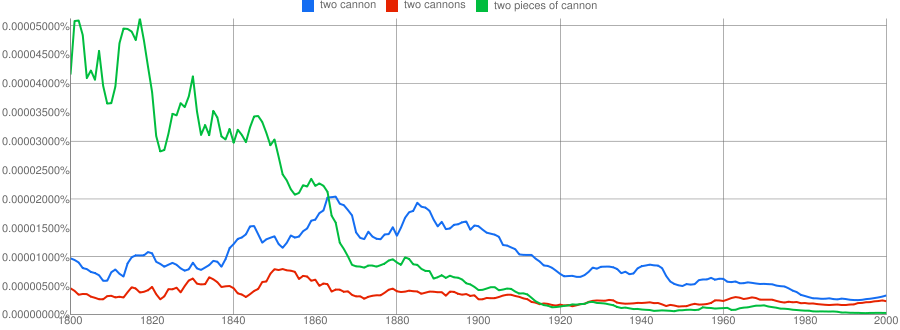I'm reading a novel based in ye olde pirate-times, and I have come across the author's usage of "cannon" (without the "s") to refer to multiple cannons.
The ship boasted 32 cannon onboard.
Is this just an archaic usage that the author is employing for purposes of story-telling? Also, how/why did this evolve to "cannons" in modern usage?

